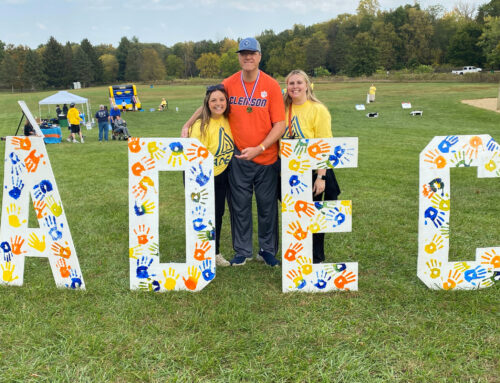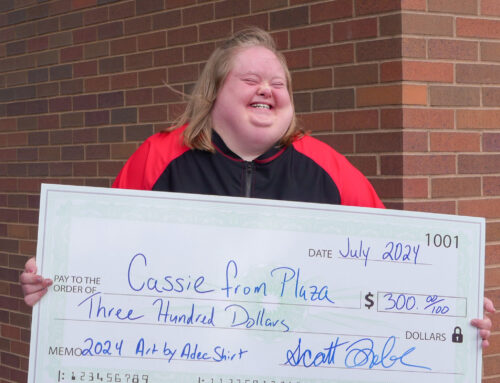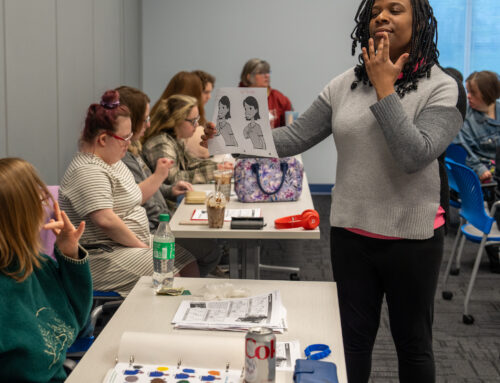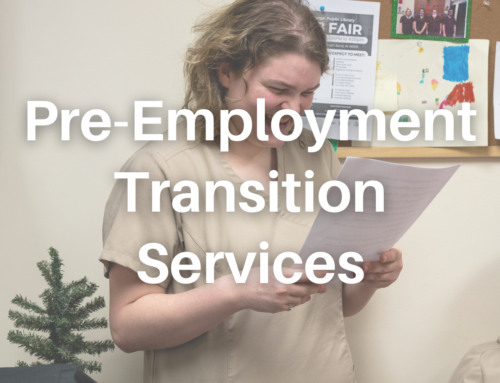It’s not often that people with disabilities are represented in mainstream movies, let alone in an accurate, dignified manner — but one movie out in theaters now is different.
Finding Dory, the sequel to Pixar’s Finding Nemo that broke box-office records on opening weekend, delivers an important message about disability that aligns perfectly with that first pillar of ADEC’s mission of “A Life of their Own.”
Dory, a supporting character in Finding Nemo’s rescue mission to find clownfish Nemo after he was scooped up by a boat, lives with chronic short-term memory loss. While her disability was used for comedic relief during the first movie, it turns into a central theme in the 13-years-later sequel.
In Finding Dory, the forgetful blue tang fish starts remembering scenes from her childhood and embarks on another epic mission to find her parents.
During one flashback to Dory’s childhood, her parents are shown crying and embracing each other, wondering aloud how Dory will ever be able to make it on her own without their constant care and support.
We know many parents and guardians in Elkhart County can relate. It’s a very real fear not often discussed in public, and it’s a heartbreaking conversation many families right here in our community have in private.
But another flashback in Finding Dory shows there is hope for those families. Baby Dory loves sea shells, so her parents create a trail of sea shells to lead Dory home in case she forgets where she is going. The family celebrates together when they realize that Dory can go play with her friends and follow the trail of sea shells to find her way home. With the help of sea shells, Dory was given a life of her own.
At ADEC, we try to find sea shells to help all of our clients live a life of their own. Only here, we call those sea shells “assistive technology.”
Seemingly simple tasks — flipping on a light switch, using utensils to eat, expressing emotions — can be complicated hurdles that stand in the way of independence for people with disabilities. That’s why ADEC formed an Assistive Technology Research and Development Group a few years ago to develop items that help our clients overcome those barriers and become independent.
Over the next several months, ADEC will bring you assistive technology success stories — our sea shells.
We’ll tell you about how ADEC has placed remote-control light switches in apartments so our clients can operate the lights in their bedrooms (closet lights, bathroom lights and bedside lamps) without assistance.
We’ll show you how some of our clients use a voice-controlled device called Echo. One client currently uses Echo to play music and another asks the Echo device to tell him jokes, but that’s just the starting point. The device is capable of controlling lights and appliances, calling a cab, offering reminders for medications and reciting important information like news and weather alerts.
Many of our clients use iPads to communicate or for entertainment.
Before we bring you more of those stories, we’ll give you a chance to see how assistive technology gave Dory a chance at independence and a life of her own. We’re giving away two tickets to Finding Dory at Linway Cinema in Goshen — you pick the date and showtime — and all you need to do is head over to our Facebook page and “like” the contest post.
Anyone who likes or comments on the post will be entered to win the pair of tickets, and a winner will be randomly selected at 8:30 a.m. July 5.
Required disclaimer: This contest is not in any way associated with or endorsed by Facebook.











